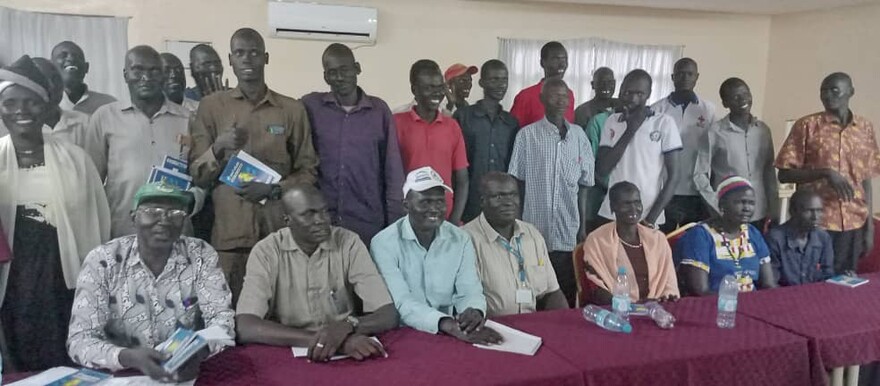The Community Emergency Development Support (CEDS), in collaboration with the State Ministry of Housing, Land, and Public Utilities in Lakes State, on Monday organized a vital one-day workshop focused on the payment of water tariffs.
The event took place at the Palm Tree Hotel and saw the participation of 42 attendees, including representatives from various sectors such as youth, women, pump mechanics, WASH partners, water users committees, government executive directors, and Payam administrators from Rumbek Central, Rumbek North, and Rumbek East counties.
The workshop aimed to address several key objectives, primarily the restoration of water tariffs paid by water users. The funds generated from these tariffs will be used to cover the expenses associated with operating and maintaining water facilities.
Additionally, the workshop sought to garner political support from the state government for the implementation of water tariffs. It also aimed to propose a robust administrative structure for overseeing the collection of water tariffs, procurement of necessary spare parts and tools for maintenance, and transparent accountability for the collected funds.
Barnaba Makuac Magol, the Director of Water for Lakes State, emphasized the sustainability challenges faced by the local government and partners in maintaining the extensive network of 2,780 boreholes across Lakes State. He stated, “Each house should pay a borehole water tariff of one thousand South Sudanese pounds per month for the maintenance… these funds should be saved in the account by the water management committee… for buying spare parts whenever there is a breakdown.”
Makuac Magol acknowledged the significant number of non-functional boreholes, emphasizing the necessity of community participation. “We have a lot of breakdown of boreholes across the counties… and that is why UNICEF, CEDS, and other NGOs partners involved in the WASH sector,” he said. He highlighted the importance of the community collecting tariffs and forming structures for managing these resources effectively.
David Mayuen Mawel, CEDS WASH Engineer and Lakes State’s WASH coordinator shared that the workshop was conducted in collaboration with the Ministry of Housing and Public Utility and UNICEF, who acted as the donor. He explained, “The main objective of this workshop was to revive the water tariffs collection… to maintain the boreholes and water yards.”
Mawel emphasized that the dwindling functionality of boreholes necessitated a sustainable solution: “The only way to sustain the water facility is to collect water tariffs… to repair or rehabilitate the boreholes at the end of the day.”
Mark Mabor, the caretaker of the Akuac residential area water yards, expressed his understanding of the importance of water tariffs in maintaining water systems. “The payment of tariffs for the water use is very important as water is life,” he stated. He recognized the shared responsibility of water management among the community, government, and partners, highlighting the significance of the knowledge gained from the workshop.
The culmination of the one-day workshop led to a resolution that every household, both rural and urban, should contribute a monthly borehole water tariff of one thousand South Sudanese pounds (1,000 SSP) to ensure the continued maintenance and functionality of water facilities. This strategic approach is poised to enhance the sustainability and accessibility of clean water for all residents across Lakes State.




